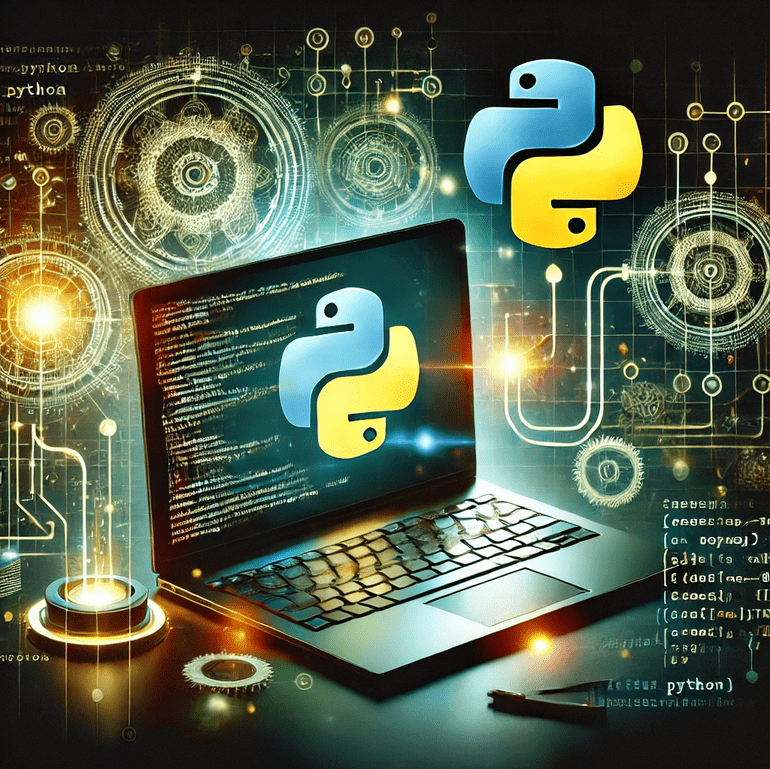In today’s rapidly evolving digital world, automation is no longer a luxury—it’s a necessity. Businesses across all industries are seeking ways to streamline processes, improve efficiency, and reduce manual errors. At the forefront of this automation revolution is Python scripting. Python’s clear syntax, extensive libraries, and versatility make it the go-to language for automating everything from simple system tasks to complex data workflows.
Whether you’re a business leader looking to optimize operations or a tech professional aiming to build powerful automation solutions, understanding Python scripting is crucial. Let’s explore how Python unlocks the power of automation for both enterprises and tech talent.
For Enterprise Leaders: How Does Python Scripting Drive Business Efficiency and Innovation?
For senior managers and executives, automation translates directly into cost savings, increased productivity, and the ability to focus on strategic initiatives.
- Direct Answer: Python scripting empowers businesses to automate repetitive tasks, streamline workflows, and integrate disparate systems, leading to significant cost reductions, improved operational efficiency, faster time-to-market for new products and services, and a more agile and innovative organization.
- Detailed Explanation and Supporting Evidence:
- Task Automation: Python can automate a wide range of tasks, from data entry and report generation to system administration and infrastructure management. This frees up employees to focus on higher-value activities.
- Example: A marketing team uses Python to automate the process of collecting data from various advertising platforms, generating performance reports, and optimizing ad spend, resulting in a 20% increase in campaign ROI.
- Workflow Optimization: Python can orchestrate complex workflows involving multiple applications and services, ensuring smooth data flow and eliminating manual bottlenecks.
- System Integration: Python’s ability to interact with diverse APIs and systems makes it ideal for integrating disparate applications, breaking down data silos, and enabling seamless communication between different parts of the organization.
- Data Processing and Analysis: Python, with libraries like Pandas and NumPy, excels at processing and analyzing large datasets. This enables businesses to extract valuable insights from their data, driving better decision-making.
- DevOps Automation: Python is widely used in DevOps for automating infrastructure provisioning, configuration management, and deployment processes, leading to faster release cycles and improved software quality.
- Task Automation: Python can automate a wide range of tasks, from data entry and report generation to system administration and infrastructure management. This frees up employees to focus on higher-value activities.
Curate Partners’ Consulting Lens: We’ve seen that organizations embracing Python-driven automation achieve significant gains in efficiency and agility. Our consulting services help businesses identify automation opportunities and implement robust Python solutions that deliver measurable results.
For Tech Professionals (Data Engineers, Data Scientists): How Can Mastering Python Scripting Advance Your Career?
For data engineers, data scientists, and other tech professionals, Python scripting is an indispensable skill for building modern, data-driven applications and automating complex workflows.
- Direct Answer: Mastering Python scripting provides you with the ability to automate tasks, manipulate data, build applications, and integrate with diverse systems, making you a highly valuable asset in roles like Data Engineer, Data Scientist, DevOps Engineer, Software Developer, and Automation Engineer, significantly boosting your career prospects.
- Detailed Explanation and Supporting Evidence:
- Data Engineering: Python is essential for building ETL pipelines, automating data cleaning and transformation processes, and integrating data sources.
- Data Science: Python is the dominant language in data science, used for statistical analysis, machine learning, and building predictive models.
- DevOps: Python is widely used for automating infrastructure management, deployment processes, and system administration tasks.
- Web Development: Python frameworks like Django and Flask are used for building robust and scalable web applications.
- Automation Engineering: Python is the go-to language for automating testing, deployment, and other software development lifecycle tasks.
- Versatility and Demand: Python’s versatility and widespread adoption across various industries make it a highly sought-after skill in the job market.
Curate Partners’ Talent Focus: We connect skilled Python developers and automation engineers with leading companies seeking talent to build and maintain their automation infrastructure and data pipelines.
For Enterprise Leaders: Is Python Scripting Secure, Scalable, and Maintainable for Enterprise-Level Automation?
Concerns about security, scalability, and the maintainability of Python code are crucial for enterprise adoption.
- Direct Answer: Python scripting, when implemented with best practices and within a secure development environment, is highly secure, scalable, and maintainable for enterprise-level automation.
- Detailed Explanation and Supporting Evidence:
- Security: Python itself is a secure language. Security concerns arise from how code is written and deployed. Following secure coding practices, using reputable libraries, and implementing robust access controls are essential.
- Scalability: Python applications can be scaled horizontally by distributing workloads across multiple servers. Libraries like Celery and Dask facilitate parallel processing and distributed computing.
- Maintainability: Python’s clear syntax and emphasis on readability make it relatively easy to maintain. Following coding style guides (e.g., PEP 8), using version control, and writing comprehensive documentation are crucial for long-term maintainability.
- Large Ecosystem and Community Support: Python has a massive and active community, providing ample resources, libraries, and support for enterprise-level development.
- Integration with Enterprise Systems: Python can integrate seamlessly with various enterprise systems through APIs and standard protocols.
Curate Partners’ Consulting Lens: We help enterprises establish secure, scalable, and maintainable Python development environments, ensuring that their automation initiatives are robust and sustainable.
Conclusion: Python – The Language of Automation and Opportunity
Python scripting is a powerful tool for driving efficiency, innovation, and career growth. For businesses, it unlocks the potential to automate processes, streamline workflows, and gain a competitive edge. For tech professionals, it’s an essential skill for building modern applications, automating complex tasks, and advancing their careers in various fields.
By embracing the power of Python scripting, organizations and individuals can confidently navigate the challenges of the modern digital landscape and unlock a future of automation and opportunity.



